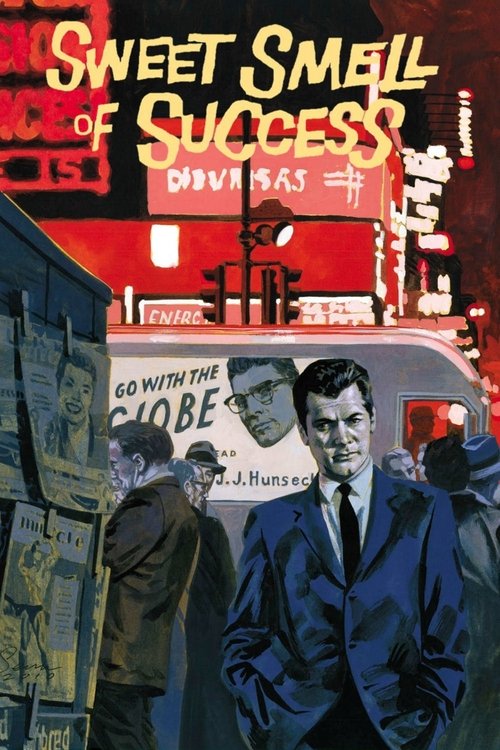
Title: Sweet Smell of Success
Year: 1957
Director: Alexander Mackendrick
Writer: Ernest Lehman
Cast: Burt Lancaster (J.J. Hunsecker), Tony Curtis (Sidney Falco), Susan Harrison (Susan Hunsecker), Martin Milner (Steve Dallas), Jeff Donnell (Sally),
Runtime: 97 min.
Synopsis: New York City newspaper writer J.J. Hunsecker holds considerable sway over public opinion with his Broadway column, but one thing that he can't control is his younger sister, Susan, who is in a relationship with aspiring jazz guitarist Steve Dallas. Hunsecker strongly disapproves of the romance and recruits publicist Sidney Falco to find a way to split the couple, no matter how ruthless the method.
Rating: 7.598/10